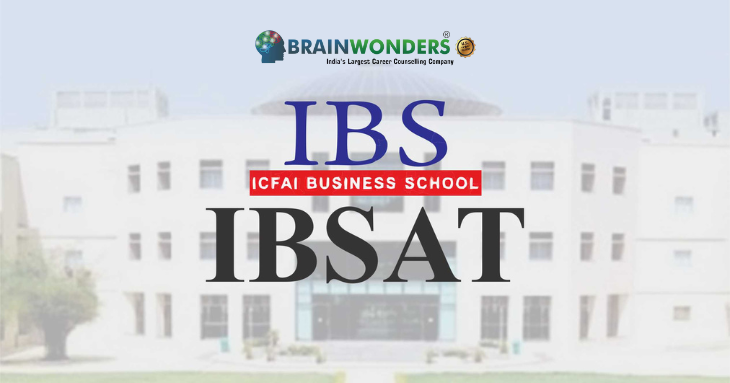

Are you aware which subjects and courses will bring you closer to your dream career?
Worry not, because the Brainwonders test and guidance will not only help you know it, but also follow it!
Blog
27 April,2023 | By Brainwonders

Biotechnology Engineering deals with researching and studying microorganisms, cell functions, and bio-organism. It is basically a mixture of Biological science and technology. Biotechnology engineering is the field of applied biology and chemical engineering that integrates with the use of living things in technology, engineering, medicine, and other essential applications. In short, biotechnology engineering is a field that blends engineering and biological science for research & development.
Biotechnology has emerged as an integral domain of science. Besides technological advancement, Biotech has increased the opportunities for engineers in biochemistry, pharmaceuticals, agriculture, nanotechnology, forensic science, microbiology, research, bioinformatics, food technology, etc. Biotech is a combination of life science and bioscience aspects of biology. The technological enhancement in the biological sector aims to focus on the cellular and molecular levels to develop products or tools to benefit the ecosystem.
As a result, Biotech has a wide range of applications like bioremediation, genetically modified organisms, bioprocessing, nutraceuticals, and vaccines that collectively aim to focus on the quality of life.
| Particulars | Specification |
| Course type | Diploma, UG, PG, Doctoral |
| Admission process | Direct college exams, common entrance exams and academic qualifications |
| Duration of the programme |
Diploma - 2 years UG- 4 years PG- 2 years PhD- 4-6 years |
| Types of specialisations |
Undergraduate level (4-year courses)
Postgraduate level (2-year courses)
|
| Average course fee | Range from Rs. 15,000-11, 00,000 based on the level and college |
| Average Salary (per month) | Around Rs. 3 - 10 lakhs |
| Career Option | Research Associate, Project Associate, Lab Technician, Scientist Process Engineer, Biotechnologist, Biotechnology Engineer, Lecturers, Professors, Advisor/Consultants |
Recommended Read: Paths You can choose after your 12Th Boards in Science.
Biotechnology engineers have a comprehensive understanding of biological systems. They can analyse, acquaint themselves with, modify, and regulate the activity of biological systems to manufacture valuable goods. In order to devise remedies for impending problems, they can introduce new qualities, improve existing ones, or completely do away with such features altogether. Recent developments in research methods, procedures, gadgets, and equipment have resulted in increased productivity while simultaneously reducing the amount of manual labour required.
Dual degree (Undergraduate + postgraduate 5-year course):
B.Tech + M.Tech or B.S + M.S course provides dual degree with a specialisation in a sub-field of biotechnology
Different specialisation courses in biotechnology engineering include:
Are you interested in Automotive engineering? If - Yes, then you must read: Career in Automotive Engineering: Courses, Eligibility, Colleges, Scope & Career Opportunities
To get into different levels of Biotechnology Engineering courses, you have to meet different requirements.
In addition to this, candidates must also pass an entrance exam. For better understanding, refer to the mentioned below chart:
| Courses | Duration | Eligibility | Courses Fees |
| Diploma | 3 years | For the diploma degrees one has to clear class 10th with at least 55% aggregate marks | Between Rs 15,000 to Rs 1,30,000 |
| Undergraduate | 4 years | Cleared Class 12th Science from a recognized board with Physics, Chemistry, and Mathematics as core subjects with at least 75% marks. | Between Rs 45,000 to Rs 11,00,000 |
| Postgraduate | 2 years | B.Tech/B.E degree in the same specialisation with minimum GPA of 6.5 or 60% of marks or First Class in the qualifying degree. | Between Rs 40,000 to Rs 3,00,000 |
| Phd | 3-5 years | Candidates must have completed UG & PG degree in the Biotechnology engineering | Between Rs 40,000 to Rs 3,00,000 |
UG Biotechnology engineering entrance examinations:
Following are the subjects or topics covered in the Biotechnology engineering undergraduate as well as postgraduate degree courses:
|
|
Listed below are the top biotechnology engineering colleges where one can complete his/her education:
| Colleges | Location |
| Indian Institute of Technology, New Delhi | New Delhi |
| Indian Institute of Technology, Kanpur | Uttar Pradesh |
| Birla Institute of Technology | Ranchi |
| Anna University | Chennai |
| Indian Institute of Technology, Kharagpur | West Bengal |
| Delhi Technology University | New Delhi |
| Indian Institute of Technology, Bangalore | Karnataka |
| Chandigarh University | Punjab-Haryana |
| NIT Calicut Indian Institute of Technology | Calicut |
| Indian Institute of Technology, Mumbai | Mumbai |
| College Name | Location |
| University of Oxford | England |
| California Institute of Technology | California |
| Columbia University | USA |
| University of Toronto | Canada |
| Imperial College | London |
| Stanford University | California |
| Cornell University | USA |
Find Out: What Are the Top Engineering Courses After 12th?
The Biotechnology field is increasing consistently. It is frequently referred to as the industry's next IT powerhouse. So, what is it about the BT field that is so appealing? Let's look at a few of the most range of applications in this industry. Despite its recent rise to prominence, India's pharmaceutical industry continues to expand at a rapid pace. This industry is always looking for talented individuals to join its workforce.
Public-funded organisations are responsible for much of the research in India, and there are many opportunities for employment in the many BT institutes. A rigorous learning atmosphere and appealing benefits make these desirable labs places to work for highly-talented people.
Not to mention the multi-billion dollar pharmaceutical industry, which has a lot of room for growth if you're dedicated and skilled. There are many new companies and labs in India's food technology and healthcare technology sectors. Desk occupations with intense analytical demands abound in the fields of bioinformatics and computational biology.
While in India, biotechnology is still in its infancy, several countries worldwide have already realised the value of biotechnology and are taking advantage of it. It has a lot of potential in wealthy countries where BT and related sectors might help you get a wonderful job.
Modern and trending technologies are generally respected, and a great deal of financing is available for those who want to pursue their interests.
After completing the biotechnology engineering course, one can find employment in various sectors and industries. If an individual has gained a lot of experience in the biotechnology field, he/she may even get scalable opportunities in India as well as abroad. Listed below are the areas where one can find the employment in the field of biotechnology engineering:
Choosing the right career path based on your interests may be difficult after completing your 12th. After completing your secondary education, it is critical to consider a suitable professional path. Brainwonders can guide you if you're unsure about what to do after 12th. Get excellent assistance and guidance from Brainwonders Career Counselling. You can also take an assessment test to help determine your area of interest, and then you can choose a career depending on your area of interest. We provide various assessments like DMIT Tests, Aptitude Tests, Personality Tests, and IQ Tests. Till now, we've helped thousands of students find a career path that aligns with their interests. Likewise, we would be delighted to help you too!
Worry not, because the Brainwonders test and guidance will not only help you know it, but also follow it!



,_Syllabus,_Pattern,_Old_Question_Papers.png)

